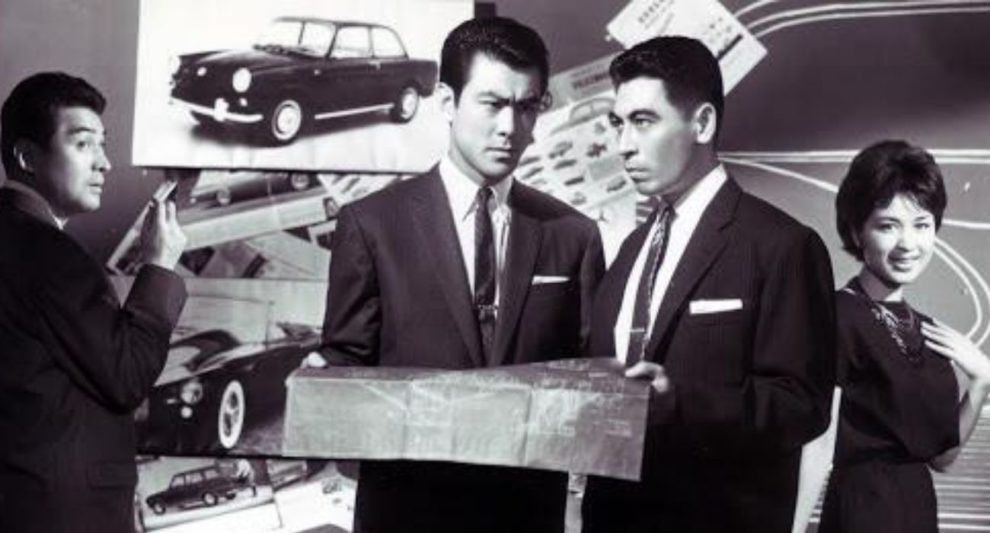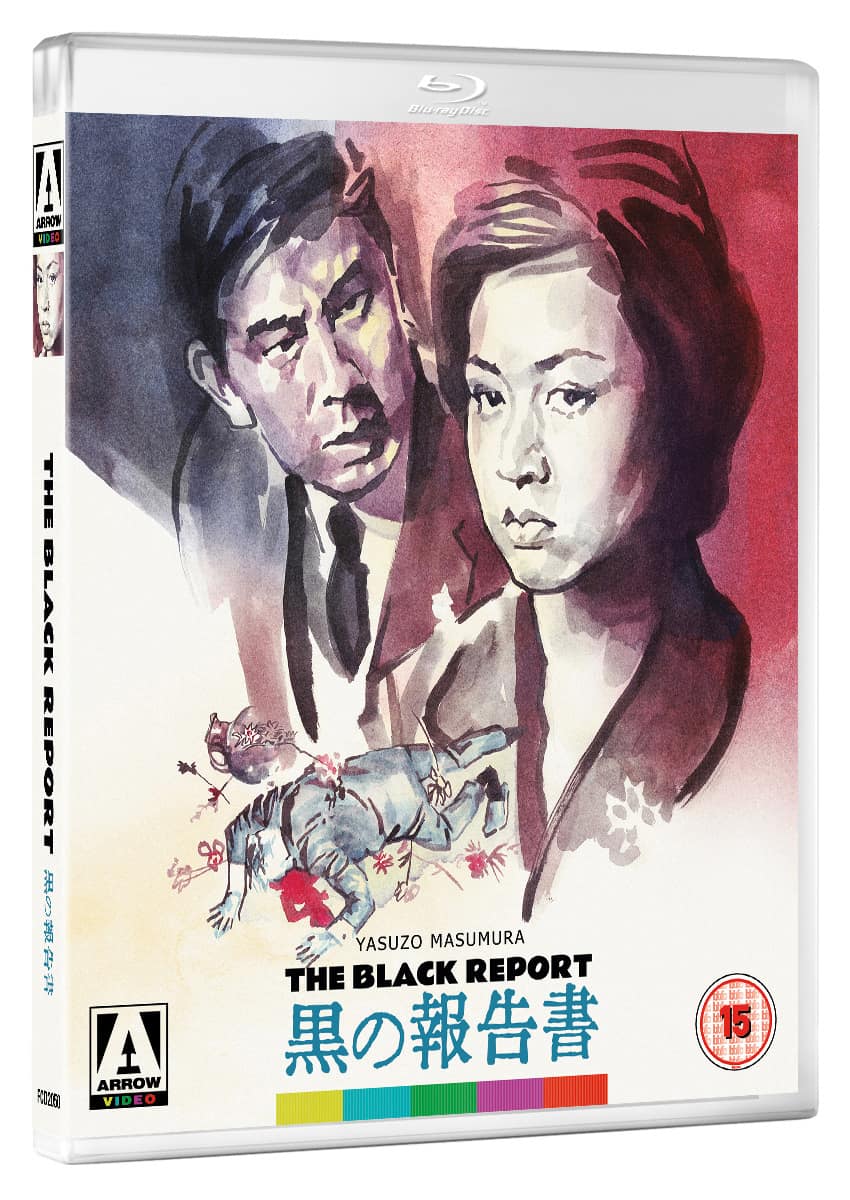After realizing the Japanese auto market has an opening for a sports car, two competing manufacturers race to the market to reveal their latest project. However, in the competitive industry with high stakes, the two opposing companies employ spying, blackmail, and other dirty tactics to try to reveal the others plans to market. Directed by prominent figure of the Japanese New Wave, Yasuzo Masumura (“Afraid to Die“, “Irezumi”), Black Test Car launched a series of similarly themed “Black” films.
Buy This Title
With an opening sequence that shows a test on the new car gone wrong, with subsequent credits framed by the burning wreckage, Yasuzo Masumura masterfully sets up the bleak and chaotic narrative of the production. After the credits finish, we get newspaper flashes that show that Tiger motors test car crashed, and soon learn that the secret trial was recorded by the opposing and more established automotive giant, Yamoto. To this degree, the production delves right into the world of corporate espionage, and never really relents as the ‘cat and mouse' game becomes exponentially devious and calculated as the product reveal date approaches. Consequently, the desperation of the staff at Tiger motors creates a constant sense of drama and urgency in their attempts to one up the more established Yamoto.
Having proven previous success in approaching the dark side of commercialism with “Giants and Toys”, Masumura's take on the auto industry taps into a similar dark ethos in the competitive market. As a result, the film's subjects seem to be at the whim of their jobs in offering up personal sacrifices and undermining their own morality in order to succeed. This approach seems to convey a general disgust, albeit it one of morbid fascination, with the way in which loyalty and the drive to come up top (financially) can lead to great corruption of one's moral compass.
This is best reflected in employee Yutaka Asahina (Jiro Tamiya), who also acts as the closest to resemble a protagonist (in the traditional sense). Yutaka appears to be the only one troubled by his choices, showcasing a degree of restrain and eventual disconnect from his superior at the company. Additionally, the time with the troubled marketing executive acts as the only really release from the constant back and forth of scheming and planning, allowing for the audience to center themselves and get a humanitarian perspective.
In having to keep such a tense atmosphere with well timed reprise, the cast making up Tiger Motors does a phenomenal job of capturing the tense situation. Adversely, the opposing company and their spies present more self assured personas reflective of the comfort afforded in being more established and with greater wealth. While both parties display deplorable traits, this subtlety in performance still allows for a ‘good vs evil' narrative where even in horrendous actions there is a sense of cheering for the ‘underdog'. Overall, the performances' across the entire production work wonderfully to create the world that Masumura set out to establish.
The cinematography, largely taking place in small rooms holding secret meetings, often feels claustrophobic. While the tight sets may not reflect the best visuals within Masumura's filmography, the enclosed spaces help add to the unease of the tense confrontations. Essentially, the audience becomes trapped in the same tight quarters as the paranoia of the employees becomes hushed in order to ensure their voices are not being heard and stolen. The score is a bit more subdued in comparison, being sparsely utilized to only highlight certain scenes. The approach to audio compliments the dialogue, putting emphasis on the meaning and tone in the actor's dialogue. Ultimately, the audio and visual experience may feel stilted in its minimal approach, but compliments the narrative in the best way possible.
“Black Test Car” marks some of the best work of the Japanese New Wave talent, which thankfully has landed under the care and distribution of Arrow Video. A deeply engaging and unrelenting experience of espionage, greed and corruption that should not be missed.
















